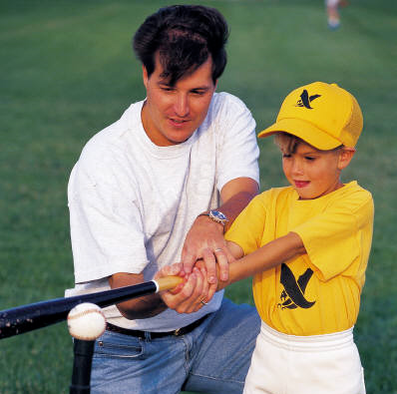“My friend just told me he struggles with homosexuality. Now what?” “My daughter told us she was born a lesbian and is now pursuing that lifestyle.” “My friend told me about her struggle. If I spend time with her, will people think I’m a lesbian too?”
Homosexuality is a difficult topic. Not only must you contend with what you believe God says about homosexuality, but also your own personal reaction when it hits close to home. No matter the situation, it can be complex and confusing. At the same time, there are some fairly straightforward concepts that can assist you as you interact with someone struggling with homosexuality. In order to get a clearer picture of those concepts, it is helpful to have a general understanding of what the person struggling with homosexuality has experienced. Much of this is revealed in the stories you read in our newsletters, but we wanted to present it in a more summarized fashion this month.
First and foremost, it is important to understand that every person is different. While there are some similarities in the issues faced by those dealing with homosexuality, each person’s journey will be different. Internal wiring and a whole series of life experiences come together to create unique individuals with different challenges and perspectives on life.
Additionally, a core concept to keep in mind is that homosexuality is all about relationships. God designed us with a need to connect with other people and a Creator in healthy relationships. Homosexuality may result when needs are not met in appropriate or healthy ways. The needs are legitimate; the way of fulfilling them is unhealthy and ultimately destructive. There is a breakdown in relationships. Below are some of the relational issues that can occur along with some perspective that may assist you as you try to relate with a friend or loved one.
Sexual/Verbal Abuse
One of the clearest breakdowns in relationship comes with sexual abuse, whether by a person of the same or opposite sex. A child learns about sex before they are prepared or equipped to understand or communicate about it. Something that was intended to be an expression of love is used in an unloving way. The child cannot understand or process that. Love and care become intermixed with confusion and shame. The result later in life can be repeating that abusive experience in an attempt to feel loved and accepted. In contrast, someone who has been abused may become very self-protective and not trust anyone, especially if someone reminds them of their abuser. The same is true, though usually to a lesser degree, with verbal abuse.
When relating with someone who has been abused, you may find it very hard to gain their trust. Situations that seem like normal/natural relational connections to you, may make them withdraw. Be patient. As you relate with them, let them set the pace. Don’t fault them for pulling back at unexpected times, but continue to communicate your care for them.
Individual Temperament/Abilities
Each of us have been designed with specific God-given gifts and abilities. There is a great mixture of artists, athletes, culinary masters, and mechanical people. Unfortunately, American culture has assigned many of these roles to one gender or the other. As a result, a guy who likes to cook and a girl who is exceptionally athletic are considered out of the ordinary. In order to “fit in,” they may try to reject the way God has designed them. The more they reject that internal wiring and ability, the more difficult things can be.
One of the most powerful things you can do for anyone is to give them an opportunity to share what they are passionate about. When you do, you give the person permission to be the man or woman God designed them to be. And whether or not you have the same gifts and passions, you can still value what you can learn and understand from someone different than yourself.
Relationship with Same-Sex Parent
The first place a boy learns about masculinity is from his father, and the first place a woman learns about femininity is from her mother. At least, that’s the way it’s supposed to work. If the parent is absent physically because of something like divorce or death, the understanding of masculinity or femininity can be skewed. A parent who is physically present but abusive or emotionally absent can create the same misperception. These perceptions then create the foundation for relationships with others of the same sex.
An older/more experienced teacher, friend, or acquaintance can serve as a mentor for a person who has had an absent gender model. By walking alongside someone struggling, you can provide an incredible support simply by bestowing those things you learned growing up.
Relationship with Opposite-Sex Parent
Just as the relationship with the same-sex parent is the place a child learns to identify with their own sex, the relationship with the opposite-sex parent helps a child learn about relationships with the opposite sex. A father shows a daughter she is loved and valued in the safety and security of their relationship. She learns men should treat her well and respect her, while she learns to reciprocate that respect. On the other side, a son learns to respect and honor women and that interaction with them should be different than with other men.
Peer Relationships
In addition to the relationships listed above, a break-down in relationships with peers can contribute to a struggle with homosexuality. This could take the form of labeling or alienation. When a child is rejected by their same-sex peers, that child may reject their own sex and perhaps identify with the opposite sex. Over time, the lack of identification with the same sex is repeated in multiple situations, re-emphasizing a difference and making identification with the same sex seem less and less of a possibility. Activities in which someone would normally be surrounded by same-sex peers become overwhelming and intimidating.
As a man who is struggling with homosexuality steps into arenas with other men, he needs to receive the affirmation that he belongs there. Additionally, an invitation to be part of an activity with other men, communicates that he is a man and bestows that sense of masculinity – a task which only another man can do. The same is true with women. They need other women to model femininity.
For all these relational break-downs, the most powerful antidote is healthy relationships. While homosexuality may make you feel uncomfortable, those struggling need you to walk alongside them in honesty and openness. I challenge you to step into the uncomfortable but ultimately rewarding experience of encouraging those struggling with homosexuality.
Homosexuality is a difficult topic. Not only must you contend with what you believe God says about homosexuality, but also your own personal reaction when it hits close to home. No matter the situation, it can be complex and confusing. At the same time, there are some fairly straightforward concepts that can assist you as you interact with someone struggling with homosexuality. In order to get a clearer picture of those concepts, it is helpful to have a general understanding of what the person struggling with homosexuality has experienced. Much of this is revealed in the stories you read in our newsletters, but we wanted to present it in a more summarized fashion this month.
First and foremost, it is important to understand that every person is different. While there are some similarities in the issues faced by those dealing with homosexuality, each person’s journey will be different. Internal wiring and a whole series of life experiences come together to create unique individuals with different challenges and perspectives on life.
Additionally, a core concept to keep in mind is that homosexuality is all about relationships. God designed us with a need to connect with other people and a Creator in healthy relationships. Homosexuality may result when needs are not met in appropriate or healthy ways. The needs are legitimate; the way of fulfilling them is unhealthy and ultimately destructive. There is a breakdown in relationships. Below are some of the relational issues that can occur along with some perspective that may assist you as you try to relate with a friend or loved one.
Sexual/Verbal Abuse
One of the clearest breakdowns in relationship comes with sexual abuse, whether by a person of the same or opposite sex. A child learns about sex before they are prepared or equipped to understand or communicate about it. Something that was intended to be an expression of love is used in an unloving way. The child cannot understand or process that. Love and care become intermixed with confusion and shame. The result later in life can be repeating that abusive experience in an attempt to feel loved and accepted. In contrast, someone who has been abused may become very self-protective and not trust anyone, especially if someone reminds them of their abuser. The same is true, though usually to a lesser degree, with verbal abuse.
When relating with someone who has been abused, you may find it very hard to gain their trust. Situations that seem like normal/natural relational connections to you, may make them withdraw. Be patient. As you relate with them, let them set the pace. Don’t fault them for pulling back at unexpected times, but continue to communicate your care for them.
Individual Temperament/Abilities
Each of us have been designed with specific God-given gifts and abilities. There is a great mixture of artists, athletes, culinary masters, and mechanical people. Unfortunately, American culture has assigned many of these roles to one gender or the other. As a result, a guy who likes to cook and a girl who is exceptionally athletic are considered out of the ordinary. In order to “fit in,” they may try to reject the way God has designed them. The more they reject that internal wiring and ability, the more difficult things can be.
One of the most powerful things you can do for anyone is to give them an opportunity to share what they are passionate about. When you do, you give the person permission to be the man or woman God designed them to be. And whether or not you have the same gifts and passions, you can still value what you can learn and understand from someone different than yourself.
Relationship with Same-Sex Parent
The first place a boy learns about masculinity is from his father, and the first place a woman learns about femininity is from her mother. At least, that’s the way it’s supposed to work. If the parent is absent physically because of something like divorce or death, the understanding of masculinity or femininity can be skewed. A parent who is physically present but abusive or emotionally absent can create the same misperception. These perceptions then create the foundation for relationships with others of the same sex.
An older/more experienced teacher, friend, or acquaintance can serve as a mentor for a person who has had an absent gender model. By walking alongside someone struggling, you can provide an incredible support simply by bestowing those things you learned growing up.
Relationship with Opposite-Sex Parent
Just as the relationship with the same-sex parent is the place a child learns to identify with their own sex, the relationship with the opposite-sex parent helps a child learn about relationships with the opposite sex. A father shows a daughter she is loved and valued in the safety and security of their relationship. She learns men should treat her well and respect her, while she learns to reciprocate that respect. On the other side, a son learns to respect and honor women and that interaction with them should be different than with other men.
Peer Relationships
In addition to the relationships listed above, a break-down in relationships with peers can contribute to a struggle with homosexuality. This could take the form of labeling or alienation. When a child is rejected by their same-sex peers, that child may reject their own sex and perhaps identify with the opposite sex. Over time, the lack of identification with the same sex is repeated in multiple situations, re-emphasizing a difference and making identification with the same sex seem less and less of a possibility. Activities in which someone would normally be surrounded by same-sex peers become overwhelming and intimidating.
As a man who is struggling with homosexuality steps into arenas with other men, he needs to receive the affirmation that he belongs there. Additionally, an invitation to be part of an activity with other men, communicates that he is a man and bestows that sense of masculinity – a task which only another man can do. The same is true with women. They need other women to model femininity.
For all these relational break-downs, the most powerful antidote is healthy relationships. While homosexuality may make you feel uncomfortable, those struggling need you to walk alongside them in honesty and openness. I challenge you to step into the uncomfortable but ultimately rewarding experience of encouraging those struggling with homosexuality.
by Duan Walker
originally published January 2009
originally published January 2009





 RSS Feed
RSS Feed